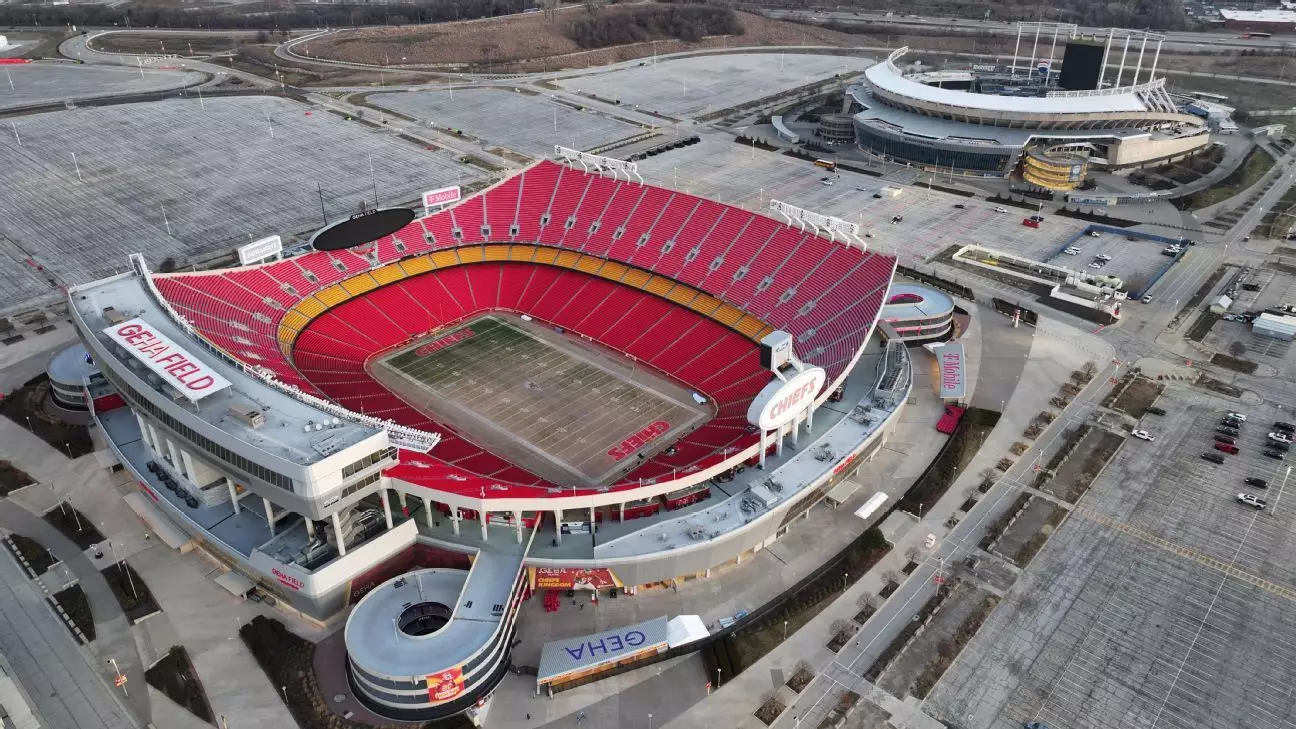In a highly volatile landscape marked by extreme weather events and the ever-shifting dynamics of professional sports, Missouri’s legislative response to both disaster relief and sporting incentives speaks volumes about the priorities unfolding within the state. The recent approval of over $100 million in aid to St. Louis—a city grappling with the aftermath of devastating tornadoes—highlights the urgency with which lawmakers are addressing both natural disasters and the looming deadlines set by major league sports teams. This duality showcases the complex relationship between state governance, economic development, and community resilience.
In the wake of tornadoes that inflicted approximately $1.6 billion in damages in May, it becomes evident that communities like St. Louis require immediate and robust responses to help residents recover. The series of early morning Senate votes reflect a pressing need to alleviate the suffering of citizens who are not just dealing with property losses but also battling the psychological toll of such disasters. While some lawmakers may argue that the situation warrants swift action, underlying tensions reveal differing opinions regarding the allocation of tax dollars—particularly when it comes to sports facilities versus essential public services.
The Sports Economic Tug-of-War
As if responding to a trifecta of crises, senators have also moved to secure hundreds of millions in incentives to keep the Kansas City Chiefs and Royals in Missouri. With a looming deadline for a competing offer from Kansas, officials appear to be waging a high-stakes game that pivots on the future of the state’s franchise teams. While it’s easy to view this as a necessary step for economic stimulation—after all, professional sports teams generate tax revenue, tourism, and job opportunities—the ethics of public funding for sports arenas deserves closer scrutiny.
Lawmakers have proffered a package that would include bonds for up to 50% of stadium project costs alongside potential tax credits. However, this proposal has not come without its critics. Economic analysts argue that public financing often amounts to little more than a costly gamble, as the supposed returns on investment frequently fail to materialize. Instead, the funding tends to siphon off taxpayer revenue that could be better utilized for social services, education, or emergency response. Critics contend that investing in private enterprises often benefits wealthy franchise owners at the expense of the working-class taxpayer.
The Potential Pitfalls of Competitive Bidding
The back-and-forth nature of intra-state sports negotiations brings to light a more concerning dynamic: a competitive bidding war fueled by precarious funding incentives. Chiefs lobbyist Rich AuBuchon characterized Missouri’s proposal as “legitimate” and “competitive,” yet this framing dismisses the real ramifications of pitting states against one another in a race for entertainment dollars. Economists like Patrick Tuohey argue that this bidding war can lead to a hollowing out of a state’s tax base, ultimately undermining the fiscal stability necessary to fund essential services such as public safety and infrastructure development.
The underlying question remains: at what point does the pursuit of economic gain through sports become detrimental to the broader community? It raises ethical questions regarding priorities when taxpayer dollars are involved—should they support maintaining games for affluent athletes and team owners, or should they focus on rebuilding communities that have been devastated by natural disasters? This conflict of interest might impede long-term stability and growth in the region, potentially leaving taxpayers footing the bill while simultaneously facing rising tax obligations.
Community Sentiment Versus Investor Interests
Amid these swirling debates lies a deeper narrative—one shaped by community sentiment. For many fans and local residents, the attachment to beloved teams transcends mere economics. However, loyal residents are increasingly aware of the trade-offs involved in public financing for stadiums that benefit private interests. Royals lobbyist Jewell Patek’s comments about needing local voter approval for tax incentives underline the multifaceted challenges that localities face: they want to support franchises but resist the financial burden associated with them.
Navigating these complex waters requires policymakers to weigh the immediate benefits of sports funding against the long-term needs of affected communities. The push towards stadium construction must align not just with the interests of franchise owners but also with the welfare of everyday citizens burdened by storms, rising taxes, and stagnant wages. As Missouri continues to encourage its sports teams to remain in the state, the essential narrative should not only encompass the allure of professional sports but also emphasize the integral role of community rebuilding in ensuring a prosperous future for all.

